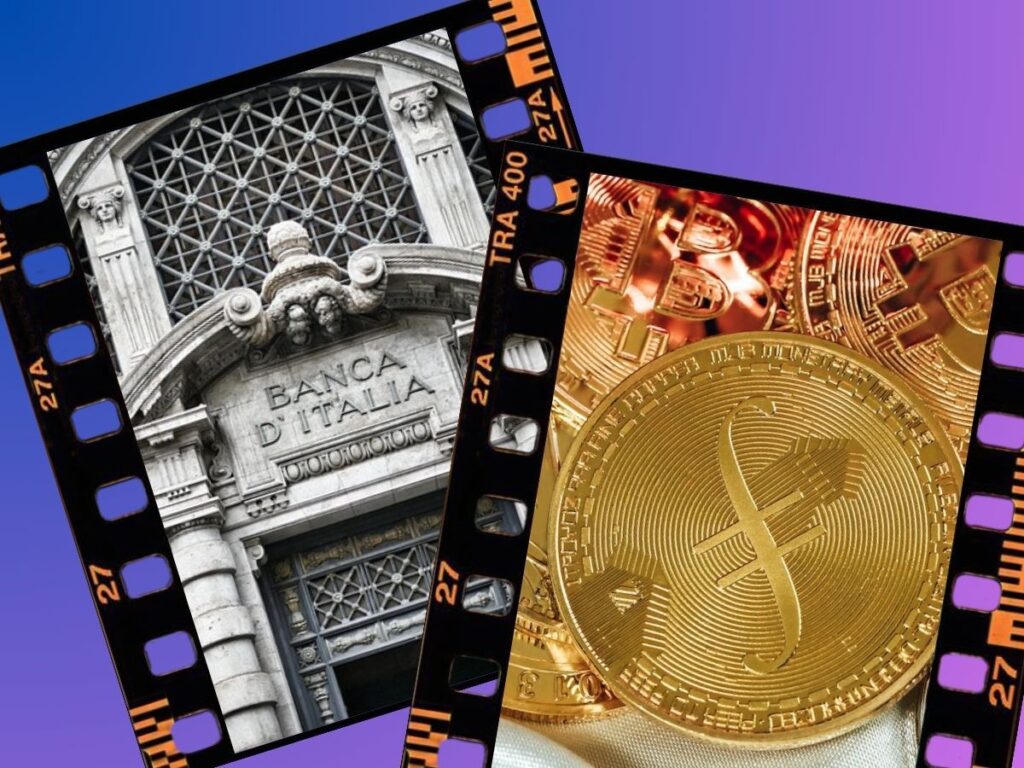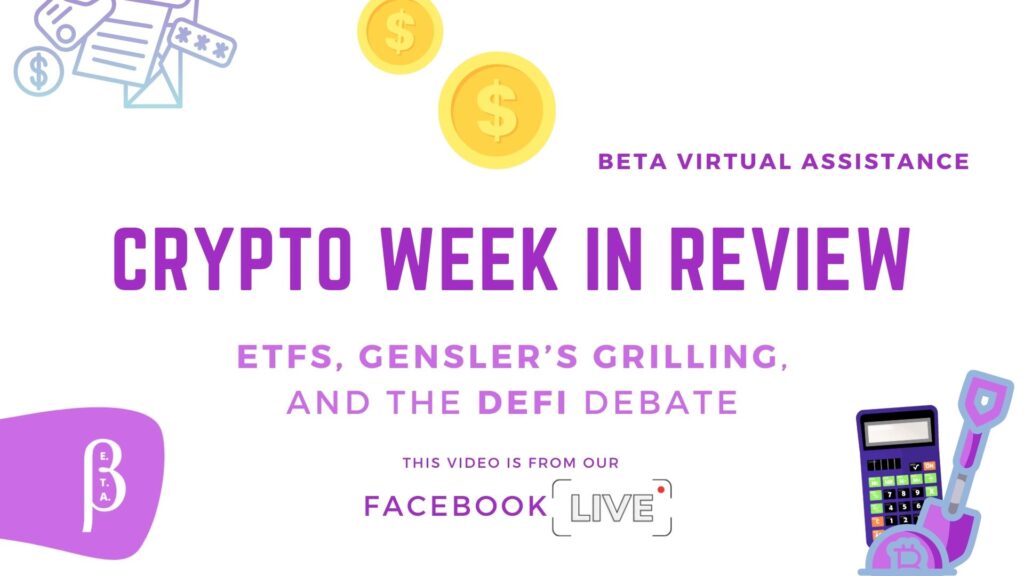
Welcome to our End-of-September edition of the Crypto Week in Review! Today we’re diving into the latest developments in the world of cryptocurrency, from ETFs to regulatory challenges and the ongoing Defi debate. So grab your coffee and let’s get started! (Links to the stories that we are referencing are included below.)
(This post is from our series of Facebook Lives. Catch the next one on our Facebook channel.)
The Excitement and Hurdles of Crypto ETFs

In the cryptocurrency world, ETFs have been a hot topic of discussion. ETFs, or Exchange Traded Funds, could be a game-changer, making it easier for investors to get involved in the crypto market through traditional brokerage platforms. However, there’s a catch. The SEC, led by Gary Gensler, has thrown up numerous roadblocks in the approval of these ETFs, frustrating many in the crypto community.
The Ongoing Crypto Winter

The crypto market has experienced its fair share of ups and downs, with the surge of interest in 2021 slowly waning. The prolonged crypto winter has even led to the withdrawal of some crypto tax software solutions from the marketplace, like Taxbit which just announced it will be shutting down its consumer product. This reflects the challenges faced by the industry as a whole.
Grayscale and the Impact of Fees on Investments
Grayscale Bitcoin Trust, often seen as an almost-ETF, has been a bridge for many retail investors to crypto investing. However, it’s not without its drawbacks. Grayscale charges a management fee of 2%, impacting the fund’s performance compared to direct investments in Bitcoin.
Fees can significantly affect the performance of your investments over time. Grayscale’s 2% annual management fee can add up to millions of dollars in revenue for the company, but it also hinders investors’ potential gains. This highlights the importance of fee structures when considering investment options.
Read more: Bitcoin ETFs: A $600B tipping point for crypto
Spot vs. Futures ETFs: A Quirky Comparison
Earlier this year, the SEC approved a Futures Exchange Traded Fund for Bitcoin, which tracks futures contracts. However, it’s interesting to note that the approval for a Spot Exchange Traded Fund, which would directly follow Bitcoin’s price and be composed of the actual asset of Bitcoin, has been delayed. This decision has raised questions about regulatory logic in the crypto space since trading futures contracts is traditionally much more risky than trading an actual commodity. Who is the SEC trying to protect?

Gensler’s Congressional Grilling and the SEC Stabilization Act
Speaking of the SEC, SEC Chairman Gary Gensler faced tough questions from Congress this week, with some senators comparing him to Tonya Harding and accusing him of “kneecapping the US capital markets with an avalanche of red tape”. They also had lots of questions about the definition of security using the example of Pokemon cards which Gensler apparently had difficulty answering.
Read more: 5 lowlights of Gary Gensler’s evasive testimony before Congress
In other news, Representative Warren Davidson has introduced the SEC Stabilization Act to address the regulatory concerns around cryptocurrency. The debate rages on, with some arguing that regulatory clarity is essential for the industry to thrive.

Coinbase’s Crypto Policy Campaign
Meanwhile, also this week: Coinbase organized a campaign in Washington, D.C., to urge lawmakers to provide regulatory clarity for the crypto industry. They emphasized the importance of the United States keeping up with the evolving crypto landscape to prevent businesses and opportunities from leaving the country by passing out cans of coffee labeled, “Wake Up!”. Will the lawmakers pay attention?
Read more: Coinbase campaign for sensible crypto policies

The Defi vs. Cefi Dilemma
In another corner of the crypto universe, Decentralized Finance (Defi) has been a revolutionary force in the crypto world. However, the U.S. is threatening to impose Know Your Customer (KYC) requirements on Defi, something that goes completely against its core principles of anonymity and personal control. This has raised concerns about stifling innovation and driving users away from Defi.
Many like to claim that CeFi (Centralized Finance) is safer than DeFi, in part because of the KYC requirements. However, several centralized exchanges – such as FTX, Blockfi, Celsius, and Mt. Gox – have faced catastrophic failures, leading to questions about their safety. Defi, on the other hand, offers more control and transparency over assets, which is why many advise long-term crypto investors to consider Defi solutions.
Read more: US Treasury, IRS Release Proposed Crypto Tax Reporting Rules
Conclusion
The cryptocurrency world is constantly evolving, with challenges and opportunities at every turn. ETFs, regulatory battles, and the Defi debate are just some of the topics driving the crypto conversation. As a small business focused on crypto tax assistance, we’re here to help you navigate this ever-changing landscape. If you have any questions or need assistance with your crypto taxes, feel free to reach out. Stay safe and informed in your crypto journey, and we’ll see you in our next Crypto Week in Review!
Stay informed about financial trends and join our live sessions.
Reach out to us for any assistance with your crypto taxes. Book a call here.
Did you read our previous post about crypto strategy titled: “Unlocking Crypto Wealth: How Online Courses and CBDCs Can Fund Your Investments“
Find out more about this week’s topic by listening to our Audio Podcast and watching our YouTube video below.





Leave a Reply